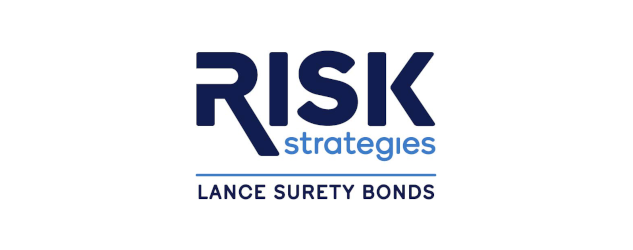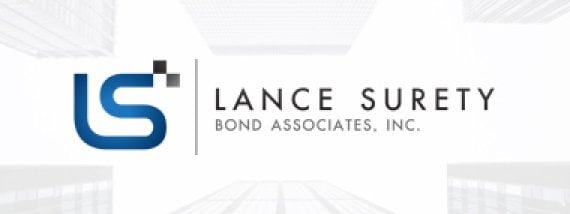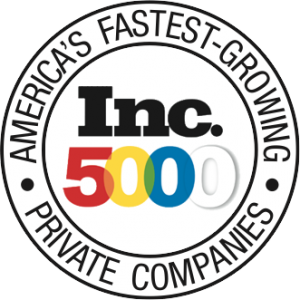9-Step Guide to Becoming a Freight Broker in 2025
The freight brokerage industry is growing rapidly, offering lucrative opportunities for those looking to enter the field. While the process of becoming a freight broker may seem complex, it can be broken down into clear, actionable steps. This guide outlines everything you need to know, from obtaining FMCSA broker authority and a $75,000 surety bond to meeting compliance requirements and securing clients. Additionally, it covers startup costs, key mistakes to avoid, and expert tips to help you build a successful and profitable brokerage business.
In 2023, the freight brokerage industry was valued at $5.17 billion, and with demand for freight brokers predicted to grow until at least 2032, anyone considering entering the industry can look forward to a lucrative career, earning anything from 15% to 30% per transaction.
However, while starting out your journey to becoming a freight broker can seem daunting, the good news is that it can be broken down into a series of steps. With my experience of supplying surety bonds to countless freight brokers across the US, I wanted to break down the process in a clear and structured way to help aspiring brokers start out on the right foot.
Below, I’ve broken down the requirements to become a freight broker with a step-by-step guide on the application process, and some common mistakes to avoid. Additionally, you’ll find more details about the all-important bonding process that is integral to your freight broker application. Read on to learn more.
Steps to Becoming a Freight Broker
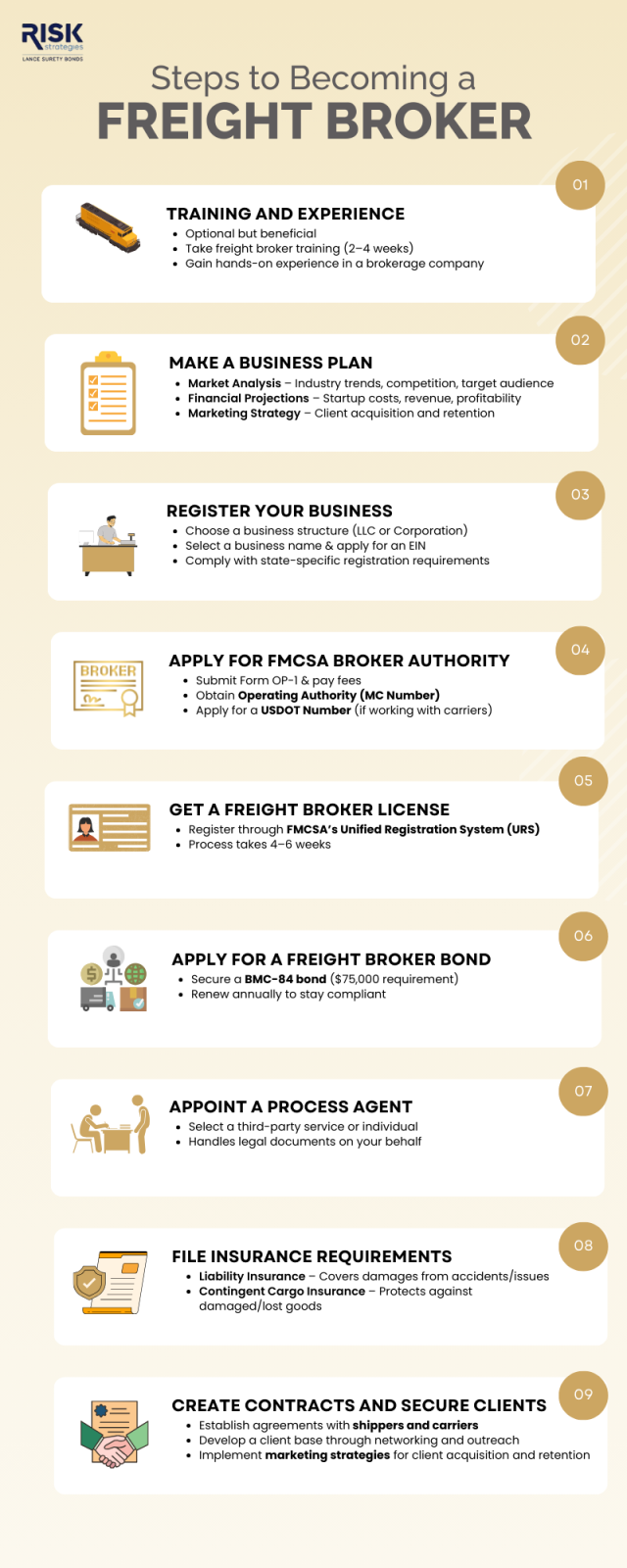
As an experienced surety bond provider to freight brokers across the US, I have gained numerous insights into the application and operational processes. Below is a step-by-step breakdown of how to start your journey into the freight brokerage business:
-
Training and Experience
While this step is optional, I often advise aspiring freight brokers to get hand-on experience of the industry they are about to enter. Freight broker training courses are a good way to do this, with programs usually lasting 2 - 4 weeks. However, working in a brokerage company can also provide insights and experience of day-to-day operations.
-
Make a Business Plan
I always recommend new freight brokers create a comprehensive business plan. In many cases, you will need this to secure funding, define goals, and create a roadmap for operations. Key components should include:
- Market Analysis – Understanding industry trends, competition, and your target audience.
- Financial Projections – Estimating startup costs, revenue, and profitability.
- Marketing Strategy – Outlining how you’ll acquire and retain clients.
-
Register Your Business
Before beginning operations, you must legally register your freight brokerage. Here I outline the first steps to doing this:
- Choose a Business Structure — You’ll need to select the appropriate legal structure for your brokerage. Most brokers opt for an LLC (Limited Liability Company) or a corporation to separate their personal and business assets.
- Business Name and EIN — You will need to select a unique business name and apply for an Employer Identification Number (EIN) from the IRS. The EIN is essential for tax purposes and will be required to open a business bank account.
- State Requirements — Depending on the state where you are operating, you may need to file additional documents, such as registering your business with the state’s Secretary of State.
-
Apply for FMCSA Broker Authority
Once your business is registered, you can apply for the FMCSA broker authority. This will involve completing the Form OP-1 and paying the associated application fee. Upon approval, you will receive your broker authority number, which allows you to legally operate as a freight broker.
- Applying for Operating Authority (MC Number) — To legally operate as a freight broker, you must apply for operating authority, also known as a Motor Carrier (MC) number. This grants you the legal ability to conduct specific freight operations.
- Applying for a USDOT Number — If you plan to work with carriers as part of your brokerage, you will also need to apply for a U.S. Department of Transportation (USDOT) number. This application is completed online along with your broker authority registration.
-
Get a Freight Broker License
Once your business has authority, the next step is to obtain a freight broker license. This process is completed through the FMCSA’s Unified Registration System (URS), where you will submit the necessary documentation and applications.
Getting a freight broker license (Motor Carrier Operating Authority or MC Authority) through the Federal Motor Carrier Safety Administration (FMCSA) typically takes 4 to 6 weeks, but it can vary depending on how quickly you complete the steps and if there are any delays.
-
Apply for a Freight Broker Bond
After securing your broker authority, the next step is to obtain the required freight broker bond (BMC-84). You’ll need to work with a surety bond company to acquire the bond, and I highly recommend that you speak with us before . The bond must be renewed annually to maintain compliance with FMCSA regulations.
-
Appoint a Process Agent
As mentioned earlier, you must appoint a process agent. This can be a third-party service or an individual. Once appointed, the process agent will be the person or company to handle any legal documents or notices on behalf of your brokerage.
-
File Insurance Requirements
Freight brokers are also required to have certain types of insurance, and in many cases this will depend on the scope of your business and where it's based. However, I often advise clients to start with these most common types:
- Liability Insurance —This covers damages resulting from accidents or issues with shipments.
- Contingent Cargo Insurance — This type of insurance protects brokers against claims for damaged or lost goods.
-
Create Contracts and Secure Clients
Once you have completed the necessary paperwork and secured the proper licensing and bonding, it’s time to focus on the operational side of the business. This includes creating contracts with shippers and carriers and building your client base. This is where marketing strategies and client acquisition come into play.
Requirements to Become a Freight Broker
Since I often work closely with clients during the freight broken application process, I am able to offer an overview of the main requirements to becoming a freight broker. However, it's also highly important to familiarise yourself with the specific requirements set forth by the Federal Motor Carrier Safety Administration (FMCSA). Here, I outline of the key requirements for starting a freight brokerage business:
FMCSA Broker Authority
Contacting the FMCSA is the first step in becoming a licensed freight broker, and I always suggest that clients familiarize themselves with the information on the website in full before they begin.
To kick off, a freight broker must be granted this FMCSA broker authority to operate legally within the United States. To apply for broker authority, you will need to submit an application to the FMCSA, including:
- Application for Authority (Form OP-1) — This form is required to apply for the necessary authority to operate as a broker.
- Operational Restrictions — You must meet all operational standards as required by the FMCSA, including maintaining a valid address and the ability to process and manage shipments.
- Background Check — As part of the application process, you will need to pass a background check to ensure you have a clean record.
Freight Broker Bond (BMC-84)
Next, you should begin inquiries to obtain a freight broker surety bond. I have advised freight brokers at all stages of the application process on the BMC-84 bond, also referred to as a freight broker bond. With our help, gaining a bond is simple, ensuring that your business operates ethically and in compliance with federal regulations.
- Amount of the Bond — The standard freight broker bond is $75,000. This bond is a guarantee that brokers will fulfill their contractual obligations with shippers and carriers. If the broker fails to do so, the bond ensures that damages are paid to the affected parties.
- How it Works — If a broker defaults on payments or engages in unethical practices, the claim will be paid by the bond provider, who will then require the broker to reimburse the bond.
The freight broker bond is essential for establishing trust and ensuring the financial stability of the business. It’s important to shop around for competitive bond rates and find a reliable bonding company.
Process Agent (BMC-85)
Another critical requirement is appointing a process agent. A process agent is an individual or company designated to receive legal documents and notifications on behalf of the freight broker. This agent is responsible for managing legal matters related to the broker’s operations and ensures compliance with state and federal laws.
Compliance with Industry Regulations
Freight brokers must comply with numerous industry regulations set forth by the FMCSA and other regulatory agencies. I recommend clients to inform themselves of the following regulations to start:
- Financial Responsibility — Brokers must demonstrate financial responsibility, including maintaining a bond and insurance.
- Recordkeeping — Brokers are required to maintain detailed records of transactions and contracts.
- Dispute Resolution — Brokers must have processes in place to resolve disputes between shippers and carriers in accordance with federal regulations.
How Much Does It Cost to Start a Freight Brokerage?
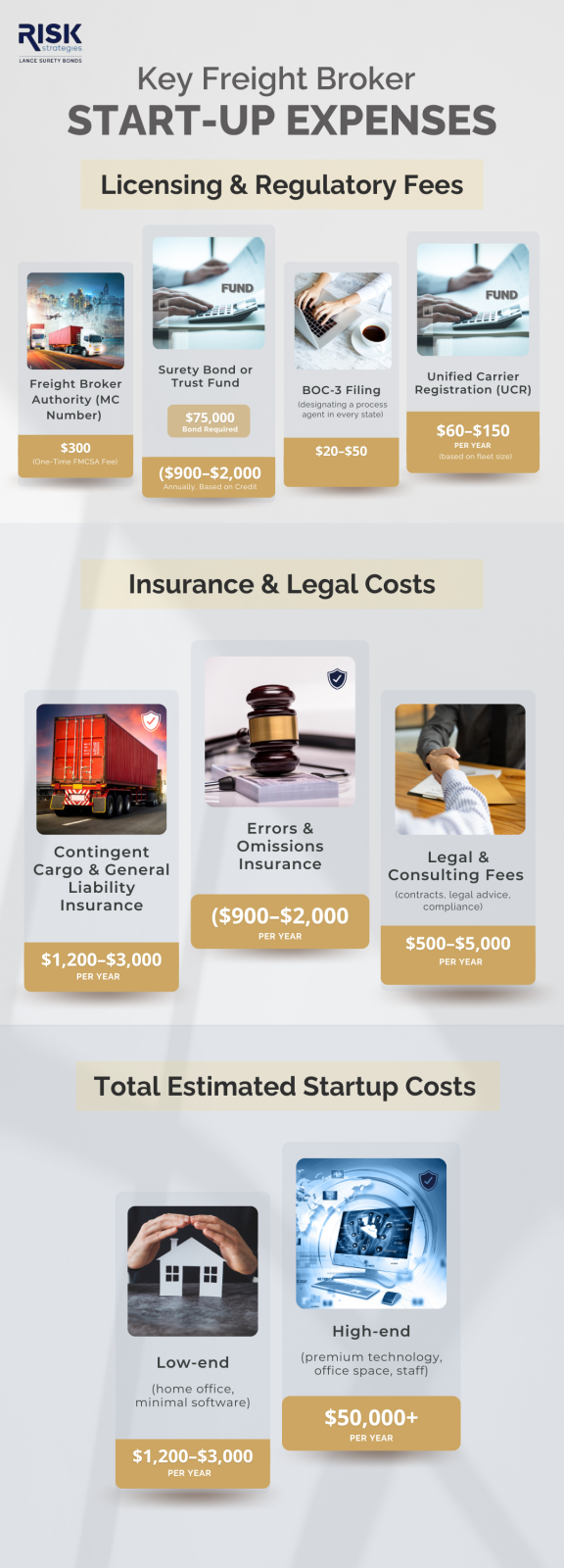
Pricing out the costs involved in starting your freight brokerage business will depend on numerous factors. I always advise new brokers to create a budget as part of their business plan, and while things such as office space, technology, and employee salaries will be linked to your specific operations, there are regulatory and operational costs that can easily be factored in at the beginning of the process.
Here’s a breakdown of the key expenses involved in launching a freight brokerage:
Licensing & Regulatory Fees
- Freight Broker Authority (MC Number) — $300 (one-time fee from the FMCSA)
- Surety Bond or Trust Fund —$75,000 bond required (bond costs vary based on credit, typically $900–$2,000 annually)
- BOC-3 Filing — $20–$50 (designating a process agent in every state)
- Unified Carrier Registration (UCR) — $60–$150 per year, depending on fleet size
Insurance & Legal Costs
- Contingent Cargo & General Liability Insurance — $1,200–$3,000 per year
- Errors & Omissions Insurance — $1,000–$2,500 per year
- Legal & Consulting Fees — $500–$5,000 for contracts, legal advice, and compliance
Total Estimated Startup Costs
Depending on your choices and business model, the cost to start a freight brokerage ranges from $5,000 to $15,000 at the low end (home office, minimal software) to $50,000 or more if you invest in premium technology, office space, and staff.
Why a Surety Bond is Essential for Freight Brokers?
A freight broker surety bond (BMC-84) is a mandatory requirement for all freight brokers in the U.S. set by the Federal Motor Carrier Safety Administration (FMCSA). This $75,000 bond serves as a financial guarantee that brokers will operate ethically and fulfill their contractual obligations.
How Does a Surety Bond Protect Shippers & Carriers?
- Ensures Carrier Payment – Carriers can recover unpaid freight charges if a broker defaults.
- Reduces Fraud Risks – The bond acts as a safeguard against unethical business practices.
- Increases Broker Credibility – Having a bond shows financial responsibility and builds trust with carriers and shippers.
Tips for Securing an Affordable Surety Bond
- Improve Your Credit Score – The cost of the bond depends on your credit; a higher score means lower premiums.
- Compare Bond Providers – Rates vary between providers, so get multiple quotes.
- Consider a Trust Fund (BMC-85) – If you have the capital, a $75,000 trust fund can be an alternative to a bond.
- Work with a Reputable Surety Company – Choose a provider with experience in freight brokerage bonds to avoid issues.
Common Mistakes New Freight Brokers Make
Working closely with freight brokers of all sizes, I have some insight into the most common mistakes that new freight brokers make as related to me by clients. Here, I look at these issues and how you can avoid them.
|
Area |
Mistake |
Solution |
|
Non-Compliance with FMCSA Regulations |
Failing to maintain licensing, bonding, and insurance requirements. |
Stay updated on FMCSA regulations, renew your bond and UCR annually, and keep accurate compliance records. |
|
Choosing the Wrong Surety Bond Provide |
Selecting a provider with hidden fees or poor claim handling. |
Contact us today to discuss comprehensive freight bond coverage and |
|
Underpricing or Overpricing Services |
Charging too little to attract shippers or too much, driving them away. |
Research market rates and build sustainable pricing that covers costs while remaining competitive. |
|
Poor Cash Flow Management |
Overextending credit to shippers or not having enough reserves for carrier payments. |
Implement quick-pay programs, factoring services, or business credit lines to maintain cash flow. |
|
Neglecting Relationship Building |
Relying solely on load boards instead of developing strong carrier and shipper relationships. |
Focus on networking, consistent communication, and reliability to build long-term partnerships. |
|
Lack of a Strong TMS & Load Board Strategy |
Not investing in a good Transportation Management System (TMS) or failing to utilize multiple load boards. |
Choose a TMS with automation features and leverage multiple load boards to maximize freight opportunities. |
|
Not Having a Clear Business Plan |
Jumping into the freight brokerage industry without a structured plan. |
Develop a detailed business plan outlining your niche, financial projections, operational strategy, and marketing approach. This will help guide decision-making and secure funding if needed. |
|
Failing to Vet Carriers Properly |
Working with unreliable carriers, leading to service failures and legal issues. |
Use FMCSA’s Safety and Fitness Electronic Records (SAFER) system to check carrier credentials, safety ratings, and insurance coverage before booking loads. |
Sources
EIN Presswire. (n.d.). Freight brokerage market research report reveals high demand for industry up to 2032. Retrieved December 5, 2024, from https://www.einpresswire.com/article/775448004/freight-brokerage-market-research-report-reveals-high-demand-for-industry-upto-2032
Federal Motor Carrier Safety Administration (FMCSA). (n.d.). Home page. Retrieved December 5, 2024, from https://www.fmcsa.dot.gov/
Federal Motor Carrier Safety Administration (FMCSA). (n.d.). OP-1(FF) application for freight forwarder authority. Retrieved December 5, 2024, from https://www.fmcsa.dot.gov/registration/op-1-ff-application-freight-forwarder-authority
Surety Bonds. (n.d.). Freight broker bonds. Retrieved December 5, 2024, from https://www.lancesuretybonds.com/license-bonds/freight-broker-bonds
Surety Bonds. (n.d.). Freight broker training. Retrieved December 5, 2024, from https://www.lancesuretybonds.com/blog/freight-broker-training
Federal Motor Carrier Safety Administration (FMCSA). (n.d.). Types of operating authority. Retrieved December 5, 2024, from https://www.fmcsa.dot.gov/registration/types-operating-authority
Federal Motor Carrier Safety Administration (FMCSA). (n.d.). Get an MC number and authority to operate. Retrieved December 5, 2024, from https://www.fmcsa.dot.gov/registration/get-mc-number-authority-operate
Federal Motor Carrier Safety Administration (FMCSA). (n.d.). Do I need a USDOT number? Retrieved December 5, 2024, from https://www.fmcsa.dot.gov/registration/do-i-need-usdot-number
Federal Motor Carrier Safety Administration (FMCSA). (n.d.). Unified registration system. Retrieved December 5, 2024, from https://www.fmcsa.dot.gov/registration/unified-registration-system
Get a FREE Surety Bond Quote in Minutes
- Fast and Secure Application
- Money Back Guarantee
- Approval in Minutes
- Nationwide Coverage
Recommended Articles
- Fast and Secure Application
- Nationwide Coverage
- Approval in Minutes
- Money Back Guarantee
- Image

- Image

- Image

Lance Surety Bond Associates, Inc. is a surety bond agency based out of southeastern Pennsylvania that is able to write all surety bond types in all 50 states. We are dedicated to servicing all of our customers' surety bonding needs throughout the country and guarantee competitive rates, timely responses, and unparalleled customer service.
